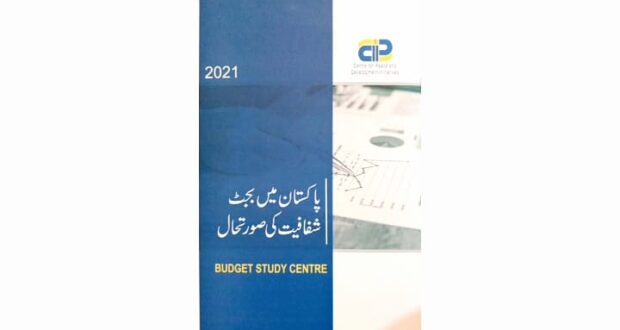KALAT: CPDI has released its second annual report on the “State of Budget Transparency in Pakistan”. The report pointed out shortcomings in the budgeting process at the federal and provincial levels and calls for budget proposals to be widely discussed with civic groups, government agencies and key stakeholders. The report says that monthly/quarterly or annual reports on budget implementation, should be shared with pubic and audit reports should be uploaded on the Auditor General’s websites on regular basis. In addition, the participation of citizens in the budgeting process should be given legal protection and government agencies should be required to consult with the citizens during the various stages of budget making process. In particular, the role of MPs should be enhanced during budget formulation and its implementation
While talking with media persons during a press conference organized by member organization of CNBA (Citizens Network for Budget Accountability) Human Prosperity Organization. Mr. Yousaf Baloch said that for the past decade, CPDI has been working to improve the budgeting process in Pakistan from the district to the federal level to promote transparency in it. As a result, second report based on “State of Budget Transparency in Pakistan 2021” has been released. This report not only examines budget transparency in Pakistan but also helps to gauge the effectiveness of access to information laws in Pakistan in obtaining budget information.
First section of the report deals with requests for information to various federal ministries and provincial departments seeking information about the various stages of the budgeting process. The second section examines the comprehensiveness of budget documents and citizen participation in budgeting. In this regard, 152 requests for information, of which 38 to the federal, 28 to Balochistan, 29 to Khyber Pakhtunkhwa, 28 to Punjab and 29 to Sindh were sent to selected federal ministries and provincial departments to test reactive disclosure in budgeting process. Surprisingly, not a single response to any of these requests was received within the stipulated time which is very disappointing. In addition to the comprehensiveness of the budget document and the inclusion of citizens, overall federal government ranked first with 62 points out of maximum 87 points.
He further added that according to the report, participation of citizens in budgeting, legislature oversight, duration of budget debate in parliaments and equitable budgeting are required to addressed. In addition, there is no mechanism for issuing quarterly, half-yearly or annual reports by any government while audit reports have not been regularly uploaded on the Auditor General’s websites.
Mr.Yousaf said that it is also worth noting that governments do not provide revised estimates timely with concerned stakeholders but are presented during the budget approval process. He demanded that the provincial and federal governments ensure the implementation of access to information laws and remove obstacles in order to promote budget transparency and accountability. In addition, the period for discussion and approval of the budget should be extended so that it can be discussed in detail. At the same time, consultation with relevant stakeholders, especially citizens, should be given legal protection. He further added that a transparent and open budget policy should be formulated based on providing maximum information.
Publish in The Balochistan Point on January 8, 2022
 Balochistan Point Voice of Nation
Balochistan Point Voice of Nation




